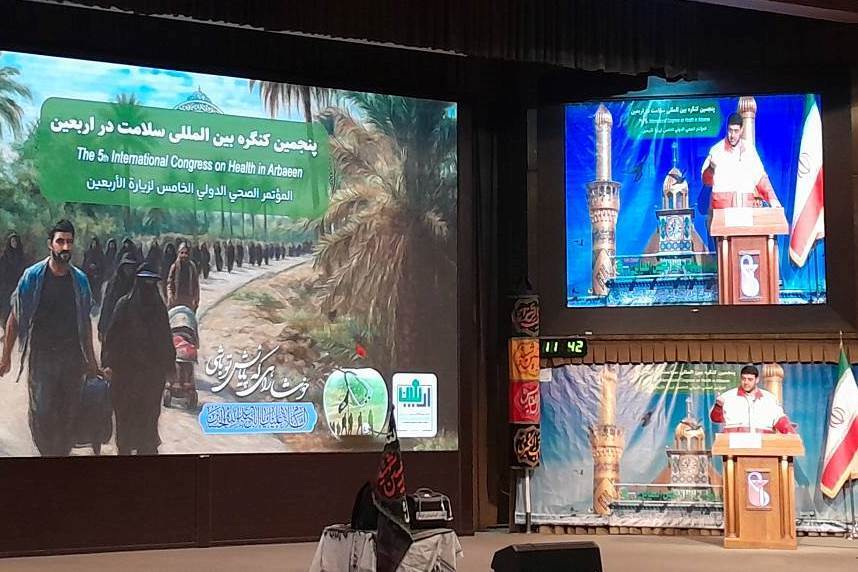Official Highlights Secret to Success of Arbaeen Service Delivery

Speaking at the ‘Health in Arbaeen’ congress, held at the Iran University of Medical Sciences in Tehran on Saturday, Pirhossein Kolivand explained the eight principles used in providing services to Arbaeen pilgrims this year.
The 2025 Arbaeen was held much more successfully and better than in previous years, and this success is the result of the efforts of officials, people and benefactors, he said.
He added, “We act on eight basic principles in Arbaeen. The first principle is inter-sectoral coordination and macro-management, which was well achieved this year.”
Kolivand said that order, discipline, and security were the second principle, which everyone tried to implement in the best way. “Giving priority to cultural programs was also another principle, which was followed with the aim of promoting the culture of Arbaeen.”
According to the official, developing facilities and services for pilgrims, expanding the participation of donors and voluntary services, managing public demands and expectations, respecting the sovereignty of the Iraqi government, honoring the Iraqi people as the main host, strengthening the religious authority of Iraq, and the dominance of a civilizational and community-oriented view on activities were the other principles in Arbaeen policy-making.
Kolivand noted that policies were defined based on these principles.
“Our policies include promoting the Arbaeen culture, maintaining order and security in service delivery, providing relief and rescue without any favors, being people-oriented and interacting with jihadist groups, providing health, relief and cultural services, and creating coordination between cultural and health services.”
As for the medical contributions of the Red Crescent Society, he said that this year, “we had five hospitals and numerous clinics on the road between Najaf and Karbala. The Iraqi government also cooperated very well, and many shelters were built along the pilgrims’ route. Inter-sectoral and inter-sectoral cooperation was very desirable, although it should continue to be strengthened. In Arbaeen, there is no I; there is we, and it is a collective effort to overtake in goodness. In this Health Congress, we must also consider this spirit as a guarantee of success.”
Read More:
Arbaeen is a religious event observed by Shia Muslims on the fortieth day after the Day of Ashura, commemorating the martyrdom of Imam Hussein (AS), the grandson of Prophet Muhammad (PBUH) and the third Shia imam.
It is one of the largest annual pilgrimages in the world, with millions of Shia Muslims, as well as many Sunnis and followers of other religions, walking to Karbala from various cities in Iraq and neighboring countries. This year, the day of Arbaeen fell on August 14.
Some 4 million Iranians took part in the 2025 Arbaeen procession in Iraq.
4314025



